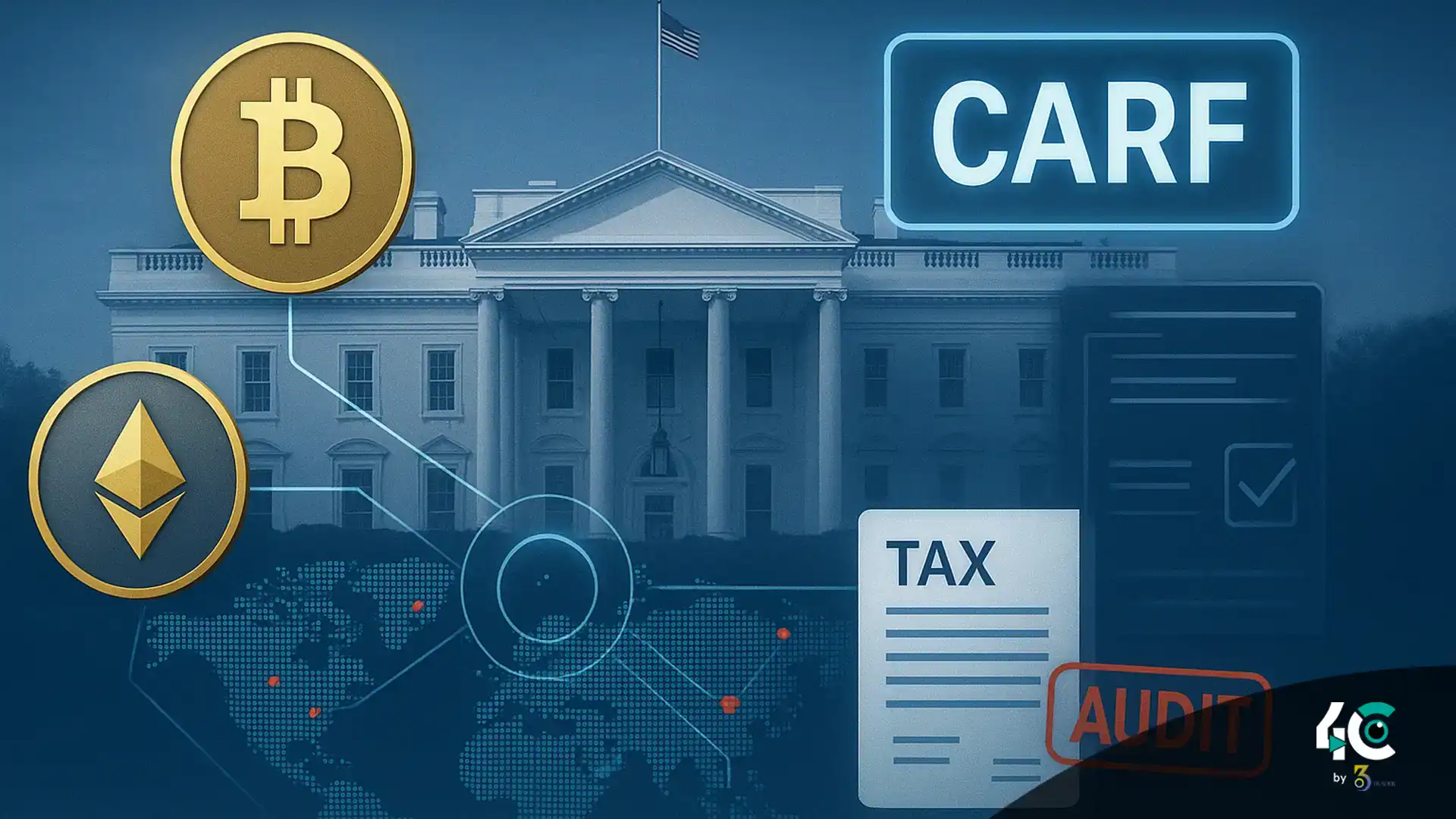White House Reviews Proposal That Could Reshape U.S. Crypto Tax Rules
The White House is assessing a sweeping proposal from the Internal Revenue Service (IRS) that could dramatically change how Americans report overseas cryptocurrency activity.
The proposal, called Broker Digital Transaction Reporting, would bring the United States into the Crypto-Asset Reporting Framework (CARF) — a global data-sharing system designed to crack down on cross-border tax evasion.
Submitted last Friday, the IRS proposal wasn’t labeled “economically significant,” but its consequences for investors could be enormous. If adopted, Americans using foreign crypto platforms would face far stricter obligations when reporting capital gains and cross-border digital asset activity.
In essence: the IRS wants visibility into offshore crypto accounts like never before.
More Than One-Third of the World Is Joining CARF
The Crypto-Asset Reporting Framework is scheduled for rollout in 2027 and is already seeing global adoption.
50 countries — including Brazil, Italy, Spain, Mexico, Indonesia, and the United Kingdom — have committed to implementing CARF by 2027.
Another 23 nations, including the United States, plan to join by 2028.
Created by the OECD in 2022, CARF allows participating countries to exchange cryptocurrency transaction data. The goal: fight tax evasion and bring digital-asset reporting standards in line with traditional financial systems.
Crypto’s borderless nature has long challenged regulators. Users can:
- move funds instantaneously
- hold wealth in self-custody wallets
- operate pseudonymously
— often outside the reach of conventional tax databases.
The White House’s own July report stated that U.S. participation in CARF would discourage Americans from shifting assets offshore to avoid taxes, ensuring domestic crypto platforms remain competitive.
Also Read : $116M Stolen from Balancer in Months-Long Hack
New U.S. Crypto Tax Rules Coming in 2026
While global CARF adoption is underway, the United States is preparing its own domestic overhaul.
Starting January 2026, U.S. crypto exchanges will be required to file 1099-DA forms — new IRS-mandated tax documents that capture detailed user transaction data.
Unlike previous rules, 1099-DA forms will require reporting on:
- inbound and outbound transfers
- wallet-to-wallet movements
- disposition of tokens
- cost basis and capital gains
Crypto tax attorney Clinton Donnelly says the 2026 rollout marks the:
“beginning of the end of crypto anonymity.”
“Right now, the IRS doesn’t have instant visibility into everything you’re doing on the blockchain. However, that’s about to change,” Donnelly warned.
When paired with CARF, the 1099-DA regime sets the stage for one of the most comprehensive surveillance and reporting measures the U.S. crypto industry has ever seen.
A Turning Point for Crypto Tax Enforcement
If the White House approves the proposal, the United States will align its crypto tax rules with a global standard that covers more than 70 countries.
For everyday crypto users, it signals a future in which:
- cross-border transactions are automatically shared
- reporting errors become harder to hide
- tax evasion risks rise significantly
- offshore exchanges no longer offer anonymity
As global regulators unite around shared reporting frameworks, digital assets are entering an era where transparency replaces invisibility.



























